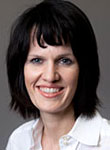Meridian 180 unites East-West thinkers in online think tank
By Joyanna Gilmour

As the world becomes increasingly interconnected, Meridian 180 -- a think tank for transpacific relations -- harnesses the power of online media to help scholars around the world connect and discuss serious global issues.
The Meridian 180 website, which launched this month after a year in development, connects a global community of intellectuals, business and NGO leaders, and government officials across multiple disciplines and areas of expertise. Members include lawyers, business people, policymakers, economists, bureaucrats, religious leaders, philosophers and scholars, including many professors at Cornell who focus on Asia-Pacific issues.
The goal of Meridian 180 is to foster international relationships and "inspire productive and often unexpected changes in policies, ideas and individual life projects," said Annelise Riles, director of the Clarke Program in East Asian Law and Culture at Cornell Law School, who conceptualized the project.
"We're at a moment where there is a tremendous need for more understanding across countries, but at the same time, there seems to be a lack of interest in seriously engaging with colleagues across the Pacific," said Riles. Meridian 180, she said, is trying to attract a "community of exceptional thinkers from the Asia-Pacific region, the United States and around the world who share a belief in the potential for substantive dialogue between visionary individuals to inspire productive and often unexpected changes in policies, ideas and individual life projects."
Meridian 180 has already received more than 8,000 visitors from more than 80 countries on six continents, with almost half of those visits occurring this year. Its membership includes more than 350 scholars.
Meridian 180's Web pages are multilingual; members can participate in online discussions in English, Chinese or Japanese. Postdoctoral fellows at the Clarke Program translate online contributions into all three languages. Dialogues among members are organized as "forums." So far, nine forums have covered topics including the earthquake and tsunami in Japan, privacy rights, the Occupy movement and financial issues. Following each forum, summaries of some discussions are posted on the website and are available to the public.
Currently, Meridian 180 forums are members-only to promote a "safe, closed setting" for conversation, said Riles.
"Meridian 180 has given us a venue for transcending disciplinary and regional debates and taking new risks to discuss topics that are difficult, such as the legacy of World War II, or ... the meaning of demonstrations against financial institutions around the world," wrote Riles in Meridian 180's annual report.
In addition to promoting online discussions, Meridian 180 supports visiting scholars and sponsors conferences, such as the "One Year Later" conference at Cornell March 11-12, which addressed the long-term consequences of the earthquake and tsunami that hit Japan in March 2011.
Meridian 180's impact over the past year includes an American law professor who began conversing with colleagues in China for the first time and a Japanese anthropologist who found renewed hope after Japan's earthquake and tsunami through conversations with an American environmental activist and an American theologian, according to the annual report.
The name Meridian 180 refers to the geographic coordinates of the International Date Line, the imaginary line separating the East and West hemispheres.
"We thought Meridian 180 was a good metaphor for the divisions we are trying to cross," said Riles.
Short-term plans for Meridian 180 include adding additional languages such as Korean to the online forum, implementing new resources for policy decisions and recruiting more members, said Riles.
Graduate student Joyanna Gilmour is a writer intern for the Cornell Chronicle.
Media Contact
Get Cornell news delivered right to your inbox.
Subscribe